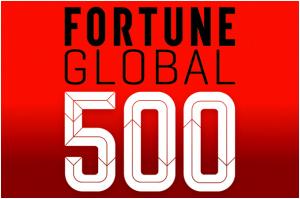
In 2022, only 16 Korean companies were included in the Fortune Global 500, the Federation of Korean Industries (FKI) said on Dec. 22.
The federation released its analysis of the companies that entered the 2022 Fortune Global 500 list. China took up the largest share with 136 companies (27.2 percent), followed by the United States with 124 companies (24.8 percent). Therefore, U.S. and Chinese companies accounted for 52.0 percent of the total, establishing a solid two-runner race.
The list had 47 Japanese companies (9.4 percent), 28 German companies (5.6 percent), 25 French companies (5.0 percent), and 18 British companies (3.6 percent). Korea had only 16 companies (3.2 percent).
In terms of sales by country, U.S. companies’ total sales stood at US$11.2 trillion, with the average sales per company reaching US$90.46 billion. Chinese companies’ aggregate and average sales amounted to US$11 trillion and US$80.98 billion, respectively.
The combined sales of Korean companies in the Global 500 amounted to US$996.2 billion, with their average sales tallied at US$62.39 billion. Korean companies’ average sales figure was the lowest among major countries, which include G5 countries and China.
Korean companies belonging to the Fortune Global 500 were engaged in a total of eight industries. Twelve companies (75.0 percent) are concentrated in four major industries — electronics/semiconductors, finance, automobiles, and energy. Korea had no Fortune Global 500 companies in new industries such as aerospace and healthcare.
An analysis of Korean companies’ and global No. 1 companies’ business performances in Korea’s main export sectors also revealed that Korean companies were inferior to them. As a result of analyzing Korean companies’ and global No. 1 companies’ business performances in four industries — electronics/semiconductors, automobiles, materials/materials/metals, and chemicals, the global No. 1 companies’ annual sales were 1.5 to 4.6 times higher than those of Korea’s No. 1 companies. Apple’s sales were 1.5 times higher than those of Samsung Electronics. It was about 2.9 times between Volkswagen and Hyundai Motor and about 2.3 times between Baou and POSCO.

